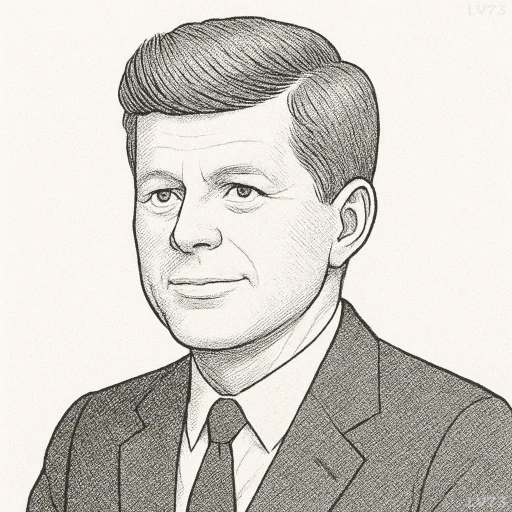“We cannot expect that all nations will adopt like systems, for conformity is the jailer of freedom and the enemy of growth.”

- May 29, 1917 – November 22, 1963
- American
- Politician
table of contents
Quote
“We cannot expect that all nations will adopt like systems, for conformity is the jailer of freedom and the enemy of growth.”
Explanation
In this statement, John F. Kennedy asserts that the imposition of uniformity in political, social, or economic systems is detrimental to both freedom and progress. By emphasizing that “conformity is the jailer of freedom,” Kennedy warns against the dangers of forcing nations or societies to adopt the same set of values, structures, or governments. He argues that true freedom is achieved when nations and peoples have the autonomy to determine their own paths, rather than being constrained by rigid, uniform systems. Additionally, he identifies conformity as the enemy of growth, meaning that innovation and societal development thrive in environments where diversity of thought and experimentation are encouraged, not stifled by conformity.
Kennedy’s remarks are grounded in the geopolitical realities of the Cold War, where the United States was engaged in a battle of ideologies with the Soviet Union. The Soviet system, which was built on totalitarian principles and a highly controlled, centralized economy, stood in stark contrast to the democratic ideals of the United States. Kennedy recognized that the freedom to pursue different political systems was essential for the development of nations, and that coercion or the forced adoption of a particular system—whether democratic or otherwise—would lead to stagnation and conflict rather than progress. His statement can also be read as a critique of the idea that one system (e.g., capitalism, democracy, socialism) should be universally applied, advocating instead for respect for the sovereignty and cultural uniqueness of different nations.
Today, Kennedy’s statement remains relevant in a world where questions of global governance and interventionism continue to provoke debate. The desire to promote democracy and human rights must be balanced with respect for national sovereignty and the diversity of political systems that exist in the modern world. Kennedy’s words highlight the importance of understanding and engagement with different cultural and political systems, recognizing that growth and innovation often come from the ability to experiment and adapt, rather than forcing uniformity. In a world that is increasingly interconnected, Kennedy’s call to avoid conformity challenges us to respect diversity—whether in politics, economics, or culture—as an essential foundation for global peace, progress, and mutual respect.
Would you like to share your impressions or related stories about this quote in the comments section?


